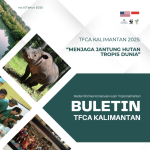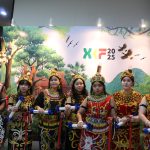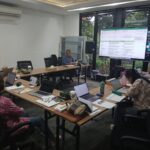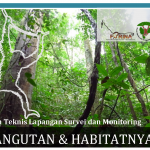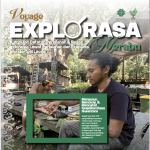During the 5-year implementation period, Administrator has been publishing progress reports of TFCA Kalimantan annually to fulfil transparency and accountability principles in program management. In 2017, Administrator published “The Annual Report 2016”, to provide information on progress and achievements that TFCA Kalimantan accomplished in 2016. This report contains 8 topics; (1) Introduction, (2) TFCA Kalimantan Management, (3) Coordination and Consultation, (4) The Progress and Achievements of the grants, (5) The Dynamics and Challenges in the grants management, (6) Intervention Schemes, (7) Financial Status, and (8) Work Plan 2017. There are several adjustments and updates in the performance classification of the grantees association with TFCA Kalimantan objectives and the chapters arrangement. This is due to suggestion by the Oversight Committee Technical Members – OCTM and an external evaluator. They suggested linking the grants progress and achievements with TFCA Kalimantan objectives (4 goals and 14 indicators).
In 2016, TFCA Kalimantan has been continuing to channel the project grants for 24 grantees of cycles 1 and 2. One grantee (Penabulu Foundation) has officially been closed of the cycle 1 project by the issuing of the Grant Closeout Report (GCR) from Administrator per June 2016. The two grantees, CSF UNMUL and BIOMA Foundation have been terminated due to lack of performances. Three grantees (AOI, PRFC, and PEKA) have completed their projects in 2016, and GCR will be issued in the first semester of 2017. Some of TFCA Kalimantan’s achievements in 2016, from the 966,299 hectare intervention area were: (1) 7 villages obtained the gazettement for village forest working area (Penetapan Areal Kerja/PAK) and 16 villages are under the proposal from the scheme of 194,877 hectare Social Forestry area, (2) the rehabilitation of 328.92 ha land area, (3) Seventy-two villages in 4 districts with 109 farmers’ groups and 1,824 people have been assisted, (3) Establishment and strengthening of 9 cooperative/business unit, (4) Enactment of 7 village regulations in green economy development, and (5) Four local honey association groups have received organic certificate.


